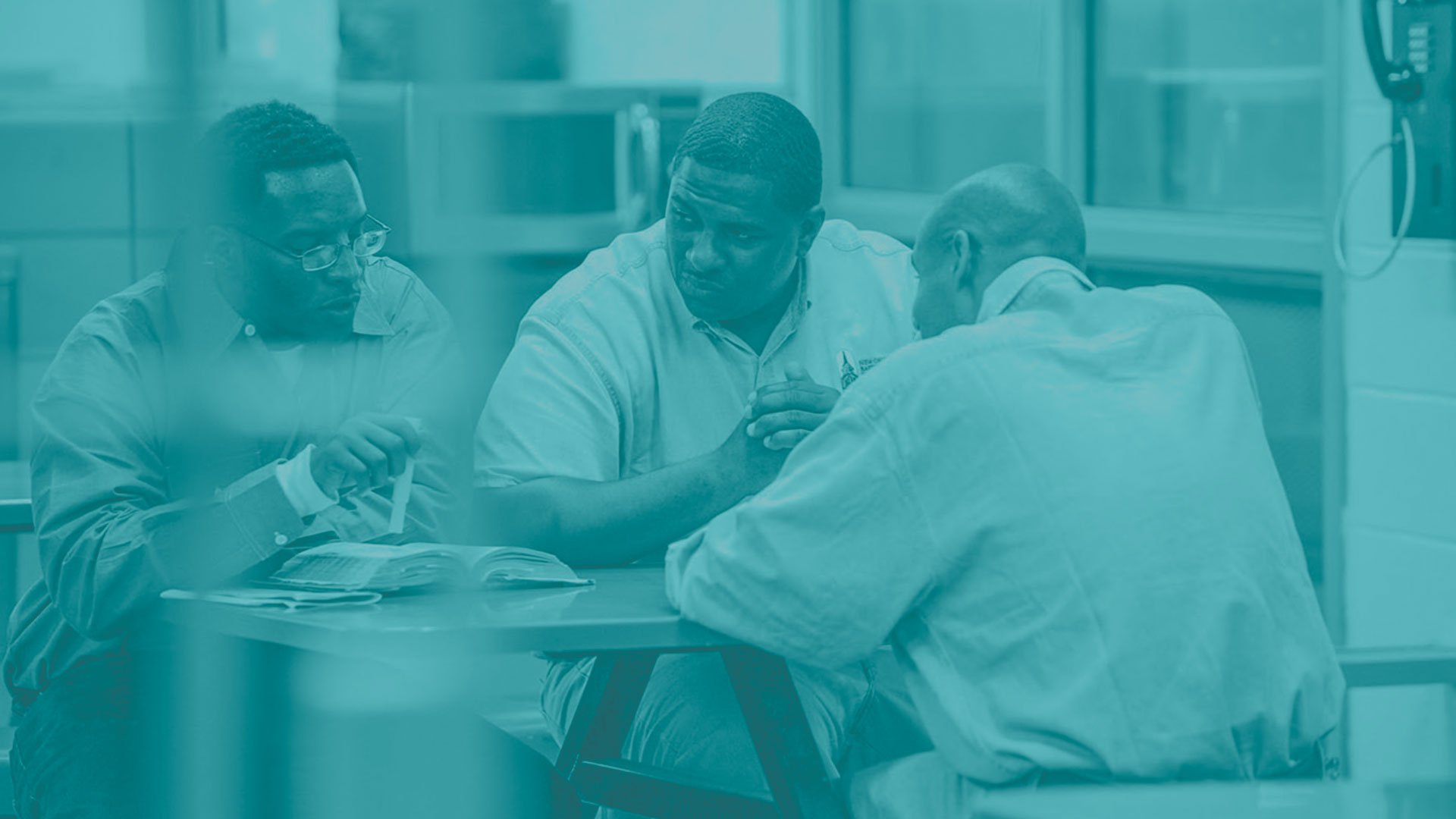
The Prison Seminary Model can change the culture inside a prison setting.
The four-year educational experience is framed in an ethos of service. In addition to theology, students receive education and training in: math, science, English literature, history, leadership, counseling, conflict management, grief and trauma support, and peer-to-peer ministry development.
The goal of the program is to equip inmate students serving long sentences (15+ years) as agents of change within and beyond the prison walls.
A proven program
“An intensive four-year study by a team from Baylor University found overwhelmingly positive outcomes at Louisiana’s Angola prison. Program participants had the prison’s highest levels of mental and emotional well-being and stability, positive attitudes toward staff, and sense of meaning and purpose in life, even while incarcerated.” Source: Joshua Hayes, “Baylor Researcher Point of View: An innovative solution for Oklahoma’s criminal justice impasse.”
“Another study on the seminary program at the Texas Department of Criminal Justice’s Darrington Unit measured the impact of seminary school graduates who transferred to other prisons to support inmates as ‘Field Ministers.’ The study concluded that, ‘An inmate’s exposure to the Field Ministry program was inversely related to criminological risk factors and aggressiveness and, to a greater extent, positively to virtues and predictors of human agency.’” Source: Jang, et al. “Prisoners Helping Prisoners Change: A Study of Inmate Field Ministers Within Texas Prisons.” International Journal of Offender Therapy and Comparative Criminology. 2019
Creating transformational opportunities
The Prison Seminary Model is about creating transformational opportunities in cooperation with state departments of corrections (DOCs) and higher-education institutions that support the moral rehabilitation of every inmate.
The following components must be present:
A Four-Year Accredited Degree Program
The prison seminary model requires a private, accredited school to offer a four-year degree plan within a state prison. The school cannot receive any funding from the inmates or the department of corrections to do so.
The curriculum must be geared toward moral rehabilitation. All faiths are welcomed, but the student must realize the course of study will include Biblical tenets. Being confronted with the teaching and life of Jesus, specifically issues of servanthood, social justice, forgiveness, loving others, and the like, demand a response.
The research conducted by Baylor University validated how the Christian context, with its promotion of being “made new,” a “positive self-identity,” “personal transformation through suffering”, and the ability to “recode” all experiences to be worked for a greater good, was key in criminal resistance. Biblical principles are used to understanding truth, morality, and wholehearted living.
The program should be a bachelor’s degree or higher, requiring a full four years of study. A prolonged time in the academic setting, being mentored by professors and sharpened by peers, is needed to determine who will stand out among the population as a model of moral rehabilitation. Some may come into the prison seminary program and leave out only a college graduate, not having the evidence of moral change.
The Degree
The degree itself does not determine a graduate’s suitability to be a moral leader among his or her peers. The transformation of one’s character, as evidenced by prosocial activity, wisdom, integrity, and selfless servanthood, is the determining factor.
A Cooperative Department of Corrections
The state’s DOC must be favorable to the following components of moral rehabilitation:
1. Peer ministry/service:
The intention of the Prison Seminary Model is to utilize the graduates in various form of peer ministry within the prison population.
The inmate graduates (peer ministers) themselves are uniquely equipped to speak into the emotional and spiritual needs of the prison population. Often, they have come from their own place of deep woundedness and defeat. The peer minister’s own story of overcoming, coupled with specific training to counsel and comfort, makes him or her a powerful voice of healing in an environment marked by constant stressors.
The fact that they live among the very ones they are serving, their peers, gives them a unique place that no free person could hold.
When inmates exhibit authentic peace and joy even while facing a long (or even life) incarceration, their peers notice. They are drawn to that inner strength and peace and desire the influence of the peer minister. Thus, most of peer-led moral rehabilitation happens in basic relational settings. When DOC personnel allow the freedom for these types of interactions to occur among the peer ministers and the other inmates, the prison culture is positively affected.
Spiritual and moral transformation can also be enhanced, however, through structural programming such as church services, soft-skill classes, various ministries, Bible studies, etc. Research indicates that “moral performance” is enhanced when inmates are empowered to create “self-projects.” (Hallet, et al, The Angola Prison Seminary Model, 51) The peer-led dynamic allows for a more authentic setting in that the inmate leading those type activities knows firsthand the difficulties of the incarcerated person. The participant has the benefit of knowing that peer minister on a personal level, living with him or her 24/7, and can evaluate the motives of that minister and the ministry. The DOC must define what they will allow the peer minister to do as “self projects.” Examples of formal peer ministry are available in the resource section.
2. Offer DOC Leadership Support:
A prison seminary must have participation from the department of corrections as a whole. Leadership should support and allow the program to thrive and grow. There is longstanding reservation in the corrections world about letting one inmate have a sense of authority over another inmate. The seminary model, however, does not create levels of authority among the inmates. The graduates (peer ministers) are servants to their peers and are expected to handle that role as a responsible citizen of their community, taking initiative to bring hope and healing to others.
3. Access for other Faith Groups (that promote morality) offering the same model:
The department of corrections must understand that by allowing the initiation of a Christian seminary within the prison, that all other faiths groups are given this same option under the same requirements (privately funded, fully accredited, 4-year bachelor’s degree plan).
Private funding
Funding (always provided by private sources – no DOC funds are used, inmates are never charged tuition) is defined by the amount the school is going to require to operate the program. The funding may be provided by an individual, a third-party entity, or the school may take on financial responsibility and raise money to cover the expenses themselves. A hybrid of any of these approaches may be worked out as well.
